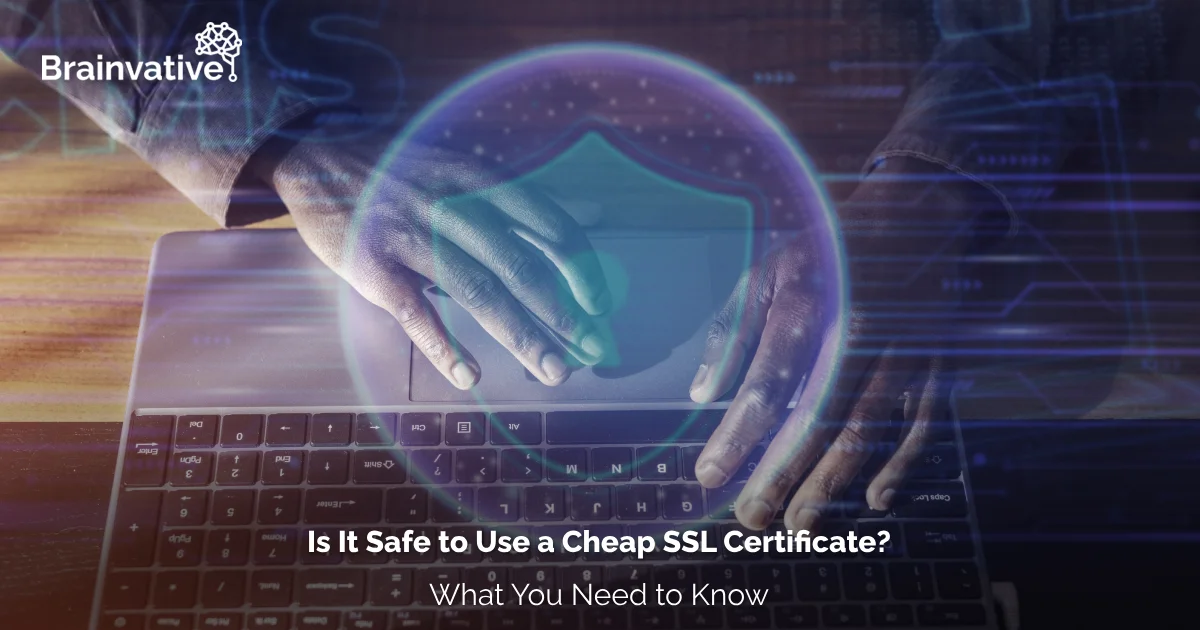In today’s digital world, trust is everything. Whether you’re running a personal blog, a small business, or launching your very first online store, having a secure connection (that little HTTPS in your URL) isn’t a luxury — it’s a must-have. That’s where SSL certificates come into play. But if you're trying to keep costs down, you’ve probably asked yourself: "Is it actually safe to use a cheap SSL certificate?"
The good news? Yes, it can be — if you know what to look for.
We’re cutting through the noise in this guide — no tech jargon, just real talk.
What Is an SSL Certificate, Really?
Here’s the deal: an SSL certificate is like a lock on the door of your website. It keeps the conversation between your site and your visitors private and secure — whether they’re submitting a contact form or making a purchase.
You’ve seen it before — that padlock symbol next to a URL or the “https://” at the beginning. That’s SSL in action. It’s small but mighty, and without it, your visitors’ data is at risk — and search engines like Google may even flag your site as “Not Secure.”
Why Are Some SSL Certificates So Cheap?
You might be thinking: if it’s that important, why are some SSLs free or super cheap?
Here’s why:
They offer basic protection — just enough to secure the connection
They only validate domain ownership (not who you are or your business identity)
They come with fewer extras — like no warranty or customer support
You usually install and manage them yourself
The low price doesn’t mean poor encryption. It just means you’re getting the essentials, not the bells and whistles.
Are Cheap SSL Certificates Actually Safe?
Surprisingly, yes — they can be very safe, as long as you get them from a trusted Certificate Authority (CA). A few reliable ones include:
These organizations still use strong encryption and are recognized by all major browsers. So even if the SSL is free or budget-friendly, your visitors' data is still protected.
Just keep in mind: basic SSLs don’t verify your identity. So, if you’re a business that relies on trust — like a bank or eCommerce store — that may not cut it.
When Is a Cheap SSL Certificate Totally Fine?
A budget SSL is a smart choice when:
You run a personal blog, portfolio, or hobby website
Your site doesn’t handle sensitive data (like credit card info)
You want that “HTTPS” for Google ranking and trust
You’re just starting out and keeping costs low
In these cases, a cheap (or even free) SSL does the job perfectly.
When You Might Want to Spend a Bit More
Cheap isn’t always the best option — especially if:
You’re running an online store or handling transactions
You want your business name to appear in the browser bar
You’re building a brand and need maximum trust
You want added protection with a warranty or business validation
If credibility and customer confidence are key for your site, paying for a higher-level SSL could be worth it.
What Could Go Wrong With a Bad Provider?
Not all cheap SSLs are created equal. Here’s what could go wrong if you choose the wrong one:
Annoying browser warnings — if the CA isn’t trusted
SSL expiration nightmares — manual renewals can be forgotten
No support — when something breaks, you’re on your own
Red flags to watch out for:
No clear refund or support policy
Vague or missing documentation
Shady upsells that pressure you into paying more
Stick to well-known providers and do a quick Google or Reddit search to read real user experiences.
How to Pick a Safe, Cheap SSL Provider
Here’s a quick checklist to help you choose smart:
Use a reputable Certificate Authority (like Let’s Encrypt, Comodo, or ZeroSSL)
Look for easy installation or tutorials
Choose one that offers auto-renewal
Check if some level of support is included
Read recent customer reviews before you buy
Our Favorite Budget-Friendly SSL Options
Let’s Encrypt
Free, trusted by browsers
Auto-renews with the right setup
Best for tech-savvy users or developers
ZeroSSL
Namecheap SSL
SSLs.com
GoGetSSL
The Bottom Line
If your website is small, simple, or just getting off the ground — a cheap SSL is not only safe, it’s smart. You’ll get the secure “https” your visitors expect, and you’ll save some cash along the way.
That said, if you’re collecting sensitive information or building a serious brand, it’s worth investing a little more for added protection and trust.
Need help choosing the right SSL or getting it set up? That’s where we come in. At Brainvative, we help you build secure, high-speed, budget-friendly websites that get noticed — and trusted.
Reach out anytime — we’re happy to help.



